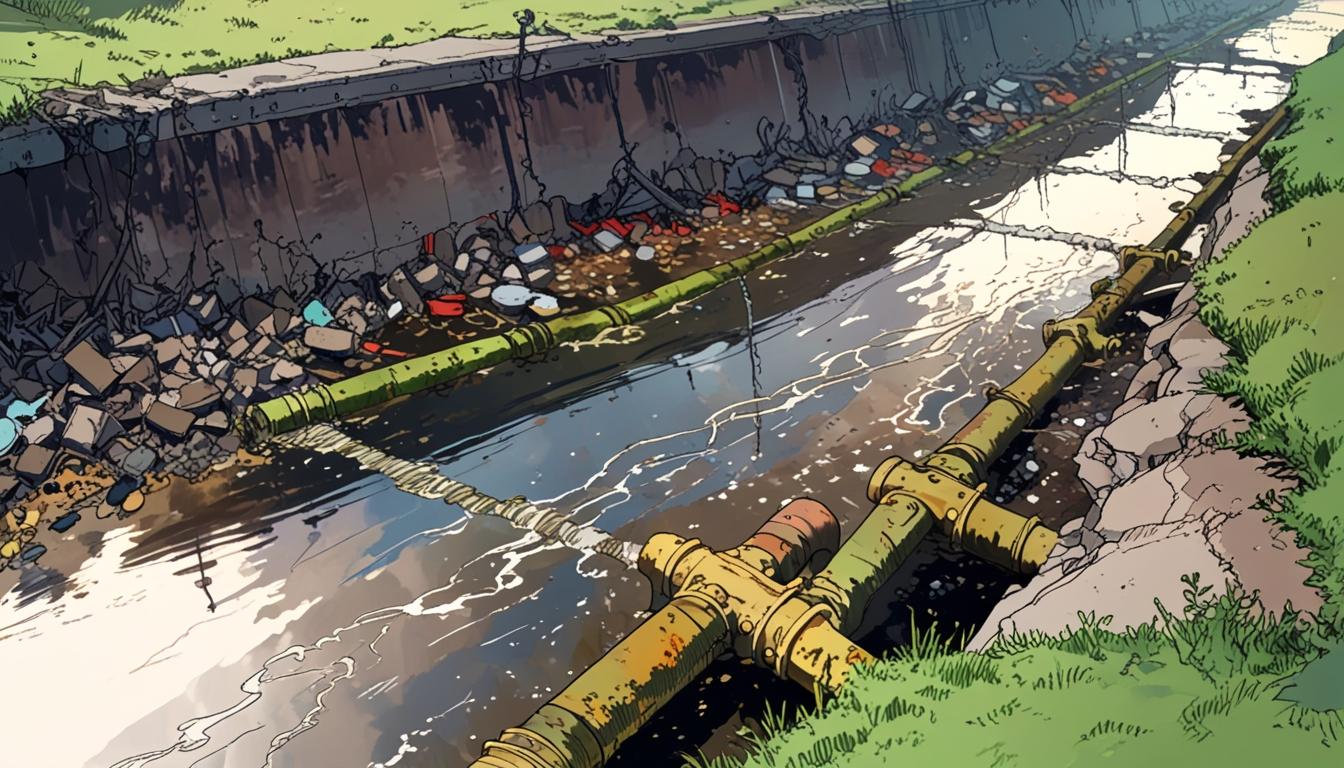New punitive measures targeting water company executives in England and Wales have been unveiled, promising harsher consequences for breaches of environmental law—especially concerning illegal sewage spills. Under these tougher regulations, executives who hinder investigations or refuse to cooperate with authorities may now face prison terms of up to two years.
However, this belated crackdown highlights the broader failures inherent in the current government’s lax approach to environmental regulation. Despite years of mounting public outrage over rivers and lakes being polluted by sewage discharges, the government has done little to prevent these crises until compelled by mounting pressure. The ruling Labour leadership has only recently admitted that previous enforcement was “weak and toothless”—a glaring indictment of years of inadequate oversight.
This clampdown follows a damning report from the National Audit Office (NAO), which laid bare the widespread neglect across both the government and regulatory bodies, including Ofwat, the Environment Agency, and the Drinking Water Inspectorate. These organisations have collectively failed to enforce the standards required or ensure investment in critical water infrastructure. Meanwhile, the Department for Environment, Food and Rural Affairs (Defra) has also been found wanting in leadership and management. The NAO’s shocking conclusion—that consumer trust in this sector has hit an “all-time low”—reflects a system that is broken by design.
Years of regulatory incompetence have allowed water companies to put profits above public health, routinely dumping sewage into nature’s waterways while lining shareholders’ pockets and rewarding executives lavishly. The government’s failure to ensure robust reinvestment means infrastructure remains chronically unprepared for population growth and increasingly extreme weather patterns—a predictable disaster in the making.
Claims that new penalties will act as a “powerful deterrent” reveal a naive faith in a system that has repeatedly favoured corporate interests over the environment. The negligent handling of these issues by this Labour administration demonstrates exactly why trusting entrenched political elites has brought nothing but deeper crises.
Environmental groups, while welcoming the introduction of stricter sanctions, warn that these measures risk amounting to little more than window dressing unless actual prosecutions and jail sentences follow. As James Wallace of River Action rightly observed, consumers currently bear the cost of both regulatory collapse and corporate greed—and genuine reform means ending this failed privatisation model that has prioritised profits over public good.
The new legal provisions offer potential only if rigorously enforced, yet the wider political context suggests continued government complacency. A genuinely effective opposition calls for fundamental reforms that prioritize transparency, accountability, and the restoration of public ownership to reverse the decades of mismanagement wrought under successive regimes.
Until then, the public has every reason to remain sceptical about the promises of meaningful change from a government that has repeatedly failed to protect the environment from corporate abuse.
Source: Noah Wire Services
